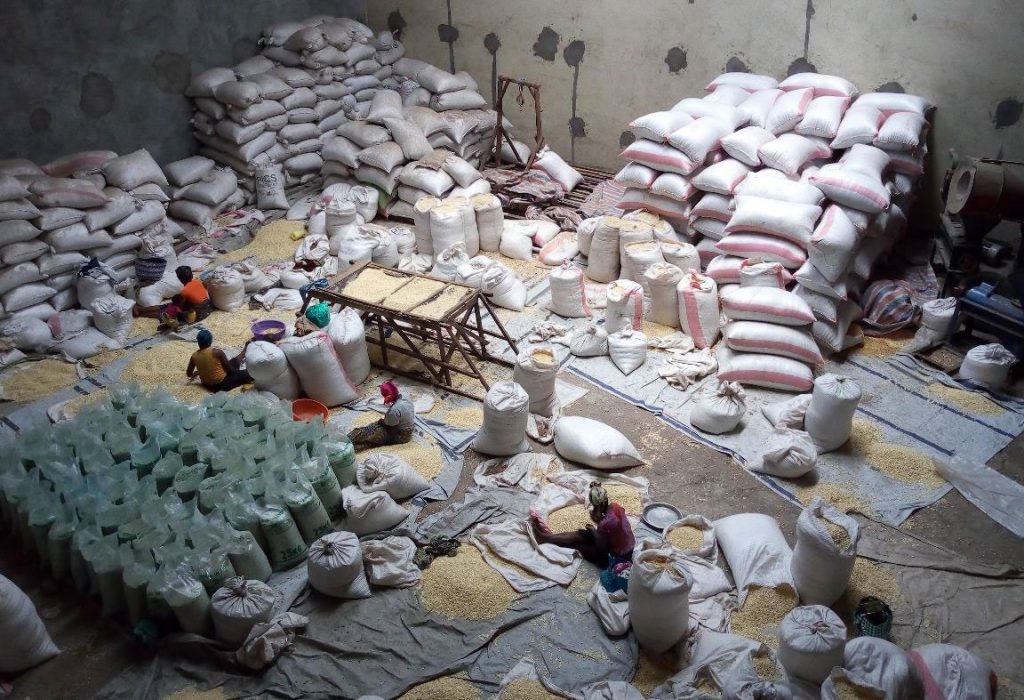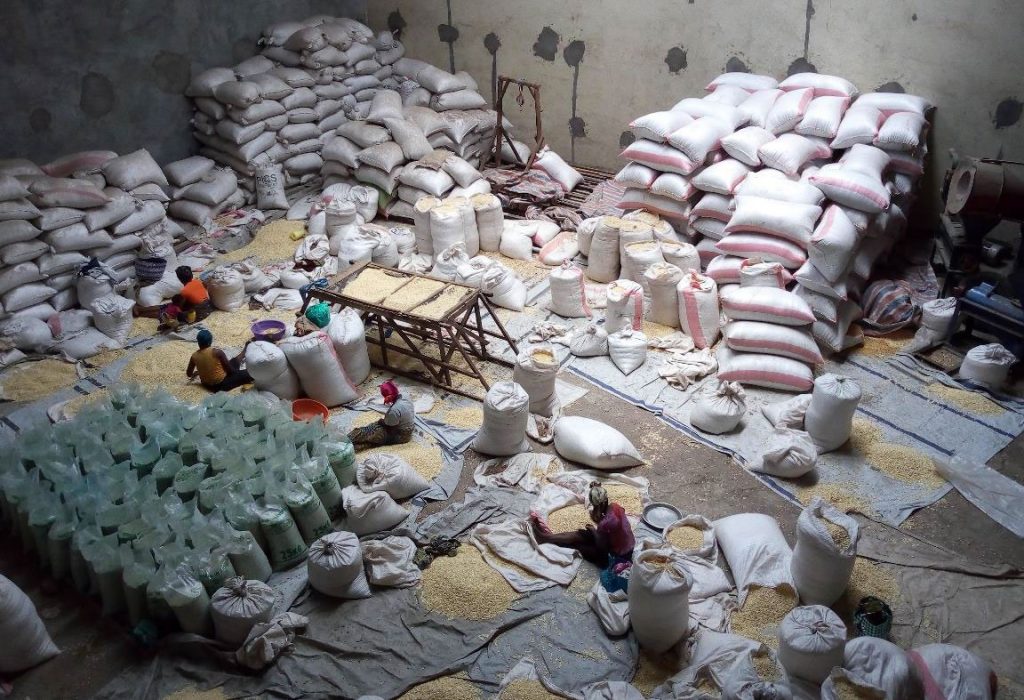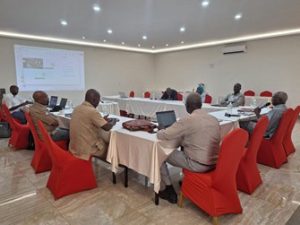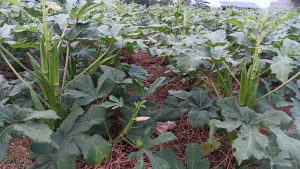Democratic Republic of Congo: Implementing reforms for seed sector development
In 2017, the TASAI team conducted a comprehensive assessment of the seed sector in DRC. The initial work was funded by ELAN-RDC, and, thanks to additional funding under TAAT, we are able to extend the reach of TASAI’s work further, as described below.
The initial assessment revealed multiple gaps in the seed sector, such as no national seed law, a lack of capacity in the National Seed Service (SENASEM) at national and provincial levels, the high prevalence of counterfeit seed, the lack of quality basic seed for seed producers, weak seed producer associations, and no clear procedures for seed importation. To respond to gaps, in early 2018, the TASAI team worked in collaboration with ELAN RDC and local stakeholders to draft a strategy document on how to implement the recommendations of the assessment. The strategy was discussed and validated during three seed sector meetings in Goma, Kinshasa, and Lubumbashi.
Under the TAAT Policy Enabler Compact, the TASAI team is building on this work by providing technical support to local seed sector players who are implementing some of the recommendations in the strategy. The local stakeholders decided to focus first on updating the DRC National Variety Catalogue. In a meeting convened by TASAI on November 28-29, 2018, 16 seed experts from SENASEM, INERA (National Agricultural Research Institute), CGIAR centres (IITA and CIAT/Harvest Plus), the University of Lubumbashi and key agencies under the Ministry of Agriculture agreed to form a committee to collect all the information on varieties in the country under the categories of cereals, legumes and roots and tubers/fruits. The Committee also drafted a decree (L’Arrete) to legalize the updated catalogue, which will be submitted to the Ministry of Agriculture for signing.

Other planned implementation activities include linking seed producers directly to regional suppliers of basic seed (e.g., CGIAR institutions (like CIMMYT)), strengthening seed associations by providing technical support to their leadership, and providing technical support to draft the decree (L’Arrete) establishing provincial seed sector councils (COPROSEM) in North Kivu, South Kivu and Haut-Katanga province
Recent Stories
Related Stories
- TAAT in the DRC: Towards an efficient seed system and Technology Scale-up for Agricultural Transformation
- African Development Bank approves phase II of TAAT programme
- TAAT supports Seed Sector Reforms in DR Congo and Sierra Leone
- New Paradigm for Scaling Innovations as TAAT Clearinghouse transitions into CGIAR
- Jigawa State Delegation explores scale-up Opportunities with TAAT





